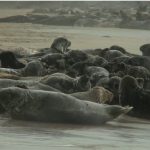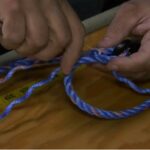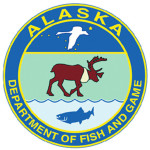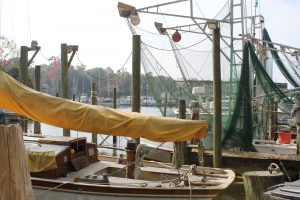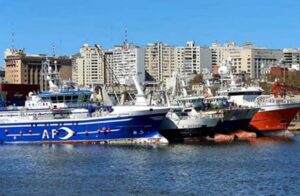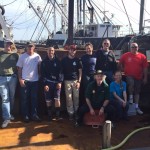Monitoring fishermen – Sampling or sentencing?
FishNet USA/October 9, 2014
By Nils Stolpe
Observation (or spying on, depending on your perspective) of fishermen, both at work and not, is playing a larger and larger role in managing our commercial fishermen. It seems as if some people – particularly managers of a certain mindset and representatives of anti-fishing ENGOs and the foundations that support them – will be satisfied with nothing less than knowing and having “on the record” what each and every fisherman is doing 24 hours a day, 365 days a year, whether he or she is on the water or off and whether his or her vessel is at sea, at the dock or hauled out of the water. On the other hand, nowhere near the level of scrutiny that these people want to inflict on fishermen is required to make up for the dearth of sound and precise data that is presently crippling the management in too many of our fisheries.
There are reasonable seeming arguments for increased levels of fisheries, or rather fishermen, scrutiny by government. But there are similar, and seemingly more compelling, reasons for increasing government scrutiny of many other professions; reasons that deal directly with far larger amounts of money, far more important matters of public health, and far more critical environmental issues.
As an example, on September 20 the NY Times had an article by Elisabeth Rosenthal titled Paying Till It Hurts : Surprise Bills – After Surgery, Surprise $117,000 Medical Bill From Doctor He Didn’t Know. The article dealt with medical providers getting around caps on various procedures by calling in other doctors/professionals who they might have financial arrangements with as consultants on even routine procedures. These are called “out of network” charges. The fees that these consultants could successfully charge were not subject to the same strictures as the primary doctor was. Thus, if the primary doctor was in business with the consulting doctor, the business would benefit far more than the primary doctor would have, and of course the consulting doctor would be the primary in other instances, and could call in his business associate as a consultant. But such an arrangement isn’t really necessary. A “you scratch my back and I’ll scratch yours” understanding could be equally as effective – and perhaps appear much less suspicious. As an example Ms. Rosenthal provided:
Before his three-hour neck surgery for herniated disks in December, Peter Drier, 37, signed a pile of consent forms. A bank technology manager who had researched his insurance coverage, Mr. Drier was prepared when the bills started arriving: $56,000 from Lenox Hill Hospital in Manhattan, $4,300 from the anesthesiologist and even $133,000 from his orthopedist, who he knew would accept a fraction of that fee. He was blindsided, though, by a bill of about $117,000 from an “assistant surgeon,” a Queens-based neurosurgeon whom Mr. Drier did not recall meeting.
The practice increases revenue for physicians and other health care workers at a time when insurers are cutting down reimbursement for many services. The surprise charges can be especially significant because, as in Mr. Drier’s case, they may involve out-of-network providers who bill 20 to 40 times the usual local rates and often collect the full amount, or a substantial portion (my emphasis).
According to Ms. Rosenthal “in recent years, unexpected out-of-network charges have become the top complaint to the New York State agency that regulates insurance companies. Multiple state health insurance commissioners have tried to limit patients’ liability, but lobbying by the health care industry sometimes stymies their efforts.”
While I wasn’t able to find any statistics dealing with the full impacts of overcharging via out-of-network billing, it would be naïve to assume that it wasn’t responsible for a really significant – and unnecessary – part of the United States’ annual $2.8 trillion annual health costs. What’s the impact of these unintended occupational “benefits” on the affordability of health care in the U.S.?
In spite of this, in spite of what is costing the national economy uncounted, unnecessary – and probably unimaginable – billions of dollars, there is no apparent demand for increased federal oversight of medical billing practices. Nothing comparable to the anti-fishing claque’s demand for ever-increasing monitoring of fishermen, fishing vessels, docks, processing plants and on and on and on all the way down to the retail packaging/restaurant menus.
As far as scrutiny of potential polluters, we have to look no farther than the lax system of oversight that was and apparently still is extended to offshore energy development as exemplified by the BP Deepwater Horizon environmental catastrophe (see NOAA Inaction in the Gulf of Mexico which I wrote in June of 2010, available at http://www.fishnet-usa.com/NOAA_Inaction.pdf). The negative impacts are still ongoing in the Gulf and to date the most visible governmental reaction to what was one of the worst environmental assaults on the Gulf of Mexico in history was the renaming of the Minerals Management Service to the Bureau of Ocean Energy Management. Wow!
Did this multi-billion dollar mishap – $50 billion and still counting, and thanks in part to the use of chemical dispersants we might be counting for years (see Exxon Valdez Oil Spill: 25 Years Later, Effects Still Linger, A. Alcántara, 2014, at http://mashable.com/2014/03/24/exxon-valdez-25-years-later/) – result in corresponding increased governmental scrutiny? Sure. Does every offshore gas/oil rig in our EEZ have a federal observer on board 24/7? Definitely not! Remember the Exxon Valdez? The Torrey Canyon? The Amoco Cadiz? What’s the federal oversight of oil tankers in U.S. coastal waters? Do they get as much scrutiny as U.S. fishing boats?
And of course these few examples represent the tip of the iceberg when it comes to unsupervised wrongdoing that has staggering impacts on our economy, our environment and our health. Does every investor/financier/broker who is in the position to do what Bernie Madoff did in what was supposedly one of our most scrutinized “industries,” and one with an extremely high potential to do damage to tens of thousands of people, now have a team of federal accountants assigned to overseeing his or her activities 24 hours a day, 7 days a week, 365 days a year? After Fukushima and Chernobyl does every nuclear power plant have federal overseers and observers assigned around the clock to every critical area? How about bus, truck or train drivers or airline pilots or chemical operators?
Without a doubt there are hundreds of thousands of people in thousands of jobs in the U.S. who can do more damage through one intentional or unintentional act than any fisherman (or any fishing fleet) could ever manage to do.
So why have fishermen been singled out?
I’d be the first to admit that fishermen are among the best secondary sources of information – samplers – about the condition of our fish stocks and the impacts of fishing on those stocks. Admittedly they are nowhere near as good a source of information as scientists/technicians actually conducting accurate censuses of those stocks would be, but after well over a century of playing at fisheries science this is something that remains far beyond the capabilities of our fisheries management system to do.
Just how good are the scientists, technicians and managers in the fisheries management system? I’d say that the New England groundfish complex, a group of a dozen or so species that dwell in the bottom or near bottom waters off our northeast coast, over the last decade or so have been among the most intensively studied and managed fish stocks in all of the world’s oceans. Look at the staggering failure that federal groundfish management has been in those years. Cod, the most important stock in the complex, continues to decline in spite of every imaginable fishing restriction outside of a total closure being inflicted on the fishermen – and as recently as last week a total closure of fishing in inshore waters was being seriously considered.
The most recent cod assessment (or actually an almost-assessment) reports that cod in the Gulf of Maine and on Georges Bank are continuing their precipitous decline.
As their latest groundfish “fix” the federal fisheries managers are now in the process of determining how to better track what the fishermen are doing. They have commissioned an exhaustive series of research projects to determine how to best monitor the fishermen electronically.
From the report on the third phase of this research (done by Archipelago Marine Research Ltd. in Victoria, British Columbia, Canada):
- For the purpose of program design, we suggest that the monitoring investment be around 5% of the fishery value, or less.
- Calculating the total cost of an EM (electronic monitoring) program is difficult as it must take a multitude of operational and program delivery factors into account. However, given the basic design considerations and certain operational assumptions, it is possible to calculate an initial estimation of program core costs. These core costs focus on the effort necessary for collecting, retrieving, processing and reporting the EM data for each of the approaches under consideration. This costing exercise indicates that the annual core costs for the NE groundfish fishery (400 vessels, 15,000 trips and 85,000 hauls per year) would be approximately $2.5 million for the Audit Approach and around $1.7 million for the Compliance Approach. This constitutes two to four percent of the fishery landed value (ex-vessel value).
- While the core costs should represent the majority of the program costs, there will be additional costs for administration and infrastructure such as program management, outreach, data storage, and travel, amongst others.
- The difference in review speed between the two approaches was gear specific. The time to review imagery for day-trawl vessels was much lower in the compliance trial (22 minutes for each hour of video reviewed) compared to the audit trial (1 hour and 40 minutes for every hour of video reviewed). In contrast, the gillnet vessel had similar review times for both trials (29 minutes and 30 minutes for every hour of video reviewed for the compliance and audit trails respectively).
- In the NE groundfish fishery, the total monitoring budget must also consider the cost of fishing log, NEFOP, VMS, ASM, and potentially a dockside monitoring program.
- The challenge with EM programs is that some key compliance issues (keeping the system powered, clean cameras, etc.) may be difficult to enforce if the violation is deemed slight, yet compliance at this level may be very important. For example, a five-minute data gap may seem insignificant for a three week fishing trip, yet power loss during a high risk capture event could significantly weaken the value of the EM program. An alternative to program controls through regulation would be to provide administrative incentives. For example, charging higher fees for incomplete data sets relative to data sets with no data gaps and good quality imagery. Vessels with historically high levels of compliance might earn lower review rates (assuming a self-reported audit method) as compared to vessels with poor compliance.
- Compliance with onboard methods is necessary and often there is a need for ongoing communication to provide feedback and engage industry in developing solutions that balance the operational needs of the vessel and the data collection needs of the EM program.
- Unauthorized or inappropriate access to the data can be mitigated by encrypting the data at the time it is created on the vessel and establishing chain of custody procedures. Data protection and chain of custody can be enhanced through a combination of technical (e.g., encryption) and process (e.g., locked cabinets and sign off logs for hard drives) safeguards.
- EM will only be one component of an integrated monitoring package in the NE groundfish fishery that will likely include fishing logs, some observer coverage and dockside monitoring.
As the last bullet point states, this electronic monitoring system is designed not to replace but to supplement the monitoring requirements that are already in place (fishing logs, observer coverage and dockside monitoring).
So we’re going to have even more, and even more burdensome (and I’d bet the bank, based on the consultants who I’m familiar with, that while “core” costs are estimated at 2% to 4% of landings, in the real world the total additional cost will be in the neighborhood of 10% or above of landings) monitoring of fishermen in the New England groundfish fishery when it seems to have been proven conclusively that it isn’t fishing that’s driving the system and the fish stocks.
Peter Baker of the Pew Trusts wrote in his recent introduction to the latest chapter of the Chicken Little book of ocean alarmism “scientists have found that the Gulf of Maine is warming faster than most of the world’s oceans and that the rising sea temperatures have negative effects on many fish.” But then he goes on to imply that had there been more stringent management of fishermen (and with that the implication that more stringent surveillance of them was necessary to make sure that they weren’t cheating), the traditional haunts of Atlantic cod off our Northeast coast would no longer be devoid of cod. My understanding of temperature tolerance in living organisms is that when it gets too hot for them in a given location they have two choices; to relocate – to extend their range – or to perish. Fish coming equipped with such mechanisms as swim bladders and fins, when the heat is on they tend to skedaddle, and in the Gulf of Maine, Georges Bank and the other waters off our Northeast they tend to skedaddle to the North and to the East. That’s where the cooler water, the water that will allow them to feed and breed and do all those other things that codfish need to do to survive, can be found. But, needless to say, Pew has come out with an “issues brief” blaming the missing cod on irresponsible fishermen and the too lax management of them by irresponsible managers. Who’d of guessed it?
The bottom line is that the waters off New England have become increasingly inhospitable to cod and, if the trend of increasing temperatures continues, that inhospitality will become toxicity. The cod that can’t get to water of the appropriate temperatures will go from being uncomfortable to being dead. According to Tom Nies, Executive Director of the New England Fishery Management Council, when speaking last week of the most recently envisioned reductions in cod catches “all of these catch limits we set in recent years came from the science, and fishermen have caught less than those limits, and we’re still in the toilet.”
Some science!
And then there are the exploding populations of spiny dogfish and gray seals. Dogfish are adept at both feeding on codfish and at outcompeting codfish for prey species (see the two complimentary charts at http://www.fishnet-usa.com/Rationality_1_2.htm for an idea of the interaction between spiny dogfish and cod off our Northeastern coast). Grey seals feed on cod, among other species of fish. Seems like at minimum a triple whammy – of which fishing has no part – but the managers, the people at Pew and half a dozen other foundations and ENGOs whose futures and fortunes are totally focused on blaming fishermen and fishing aren’t going to be deterred.
Regardless of the tunnel vision of the anti-fishing activists, you might ask so what? As long as the productivity of the waters off New England remains about the same, the biomass of fish will remain about the same as well. Why don’t the fishermen pursue, and if necessary develop markets for, other species that are almost surely going to take the place of cod (if they haven’t already)? Because they can’t, because the Magnuson Act, as amended via pressure from the “conservationists,” requires that every species under federal management be at or approaching maximum sustainable yield (at or approaching historic levels of highest abundance). This means that the managers are going to be forced, by a totally unrealistic federal requirement, to try to rebuild cod stocks to a level that, given the existing high (and very possibly increasing) water temperatures, those stocks will never reach. And to do it by cutting back on fishing.
Even though it will be futile, that will require far more than severely reducing or eliminating the directed catch of cod – something that becomes increasingly irrelevant as the cod stocks continue to decline. It also means making severely reduced bycatch allocations of cod in directed fisheries for other species; species with which cod are often inextricably mixed. And when those reduced bycatch allocations of cod are reached those other fisheries will be closed as well.
It could be that the Magnuson requirement that cod be at a level approaching MSY is a death sentence to every fishery in which they will be or might be caught.
Consider that, in spite of all of the so-called conservationists’ (aka anti-fishing activists) claims that the fisheries managers in New England weren’t in fact harsh enough in managing the fishermen – it’s obvious that they weren’t and still aren’t managing the fish – the managers were doing their state-of-the-art best. Arguably they are part of a fisheries management system that is ineffective, that has in fact resulted in both fewer fish and fewer fishermen, and that has used many millions of taxpayers’ dollars in doing so.
Being educated in that system and having their careers dependent on it, perhaps some of those managers – those at the policy level? – might understandably feel that they are now in need of something to direct scrutiny away from their abject failure in New England. As well might those anti-fishing activists who have been unable or unwilling to consider any actions that didn’t result in fewer fishermen and less fishing to “fix the New England groundfish fishery.” It’s hard to think of a more effective way of doing this than by reinforcing the “blame it all on fishing” philosophy by insisting that the fishermen must be scrutinized to an even greater extent than they have been before to make fishermen management really effective.
Naturally, writing about the so-called conservationists brings up questions about their role in fishing surveillance.
We might consider as typical in her beliefs – but not in her level of outspokenness – Sylvia Earle, former head scientist at the National Oceanic and Atmospheric Administration, a member of Pew/SeaWeb’s team of spokespersons and “Explorer in Residence” at the National Geographic Society. It’s safe to say that she is one of the most influential people in dealing with ocean issues. In some circles she has been referred to reverentially as “Her Deepness.”
From article in the NY Times magazine back in 1991 “I never eat anyone I know personally,” she said at the time. “I wouldn’t deliberately eat a grouper any more than I’d eat a cocker spaniel. They’re so good-natured, so curious. You know, fish are sensitive, they have personalities, they hurt when they’re wounded….I hope,” she said, modulating into a sly smile, “you don’t get sick of me thinking like a fish.” (P. Orenstein, Sylvia Earle – Champion of the deep).
Lest anyone think that the world’s burgeoning population and that population’s growing reliance on fish and seafood since 1991 might have influenced her bias against eating fish, she said in an interview in September of 2014 “but for North Americans and frankly for those in most of Europe to rely on fish for a significant part of their diet, they’re taking from creatures who have no choices. So, if we want to be not only good for our health but good for the health of the planet, certainly leave those wild fish in the ocean where their role holding the planet steady is much more important than on our plates. We have hundreds of other ways of feeding ourselves. (Emma Bryce, Sylvia Earle on eating fish: ‘Think of them as wildlife, first and foremost,’ The Guardian, World on a plate, 09/18/ 2014).
She also gave a thumbs down to aquaculture.
She did, I’ll note, make allowances for some of us, bestowing an exemption “for special coastal communities who don’t have many choices and do rely on ocean wildlife—island nations in particular.”
Her Deepness was asked “what’s your advice for people who want to continue eating seafood?” She answered “well, maybe they’ll think about it and choose not to once they understand the real issues. But if even then they still want to take some, then eat it with great respect and make sure that it’s once in a great while.”
Meanwhile, back to the real world that most of us live in. According to the United Nations’ Food and Agricultural Organization, in 2010 the world’s meat production was 285 million tons, egg production was 128 million tons and fish and shellfish production via aquaculture and capture fisheries was 188 million tons. More than half of the world’s meat production and more than a third of the world’s animal protein comes from fishing or fish farming.
I’ll also note that Her Deepness was a director of Kerr-McGee, an energy company involved in the exploration and production of oil and gas resources that was later acquired by Anadarko Petroleum Corporation. It seems she was more concerned with people having enough gas and oil than full bellies. You kind of have to wonder how the impact of Kerr-McGee’s contributions to greenhouse gases to the health of the Western Atlantic cod stocks stacks up against the impact of the fishermen who she would like to see unemployed?
One of her more dramatic quotes is “I hope that someday we will find evidence that there is intelligent life among humans on this planet” http://www.ted.com/quotes?q=Sylvia+Earle&cat=quotes&sort=popularity)
If her apparent desire to inflict starvation at worst and diminished health at best (remember those omega 3s) on perhaps a third of the world’s population – except, of course, for those fortunate enough to live in island nations – to save her fishy friends doesn’t establish her credentials as a fully-fledged misanthrope, it surely seems as if that final quote would do it.
So let’s assume that the antipathy Her Deepness holds for fish catching, fish growing and fish consumption has rubbed off on some of her admirers; in particular some of her admirers who have become, depending on your orientation, either marine conservationists or anti-fishing activists. That seems pretty reasonable, considering the anti-progress, anti-technology, anti-corporate, make-things-the-way-they-were-when-I-was-young attitude that seems to typify such activists (though Ms. Earle, at least, appears to be an enthusiastic supporter of technology when it comes to oceanic energy production).
How would they best manifest this antipathy? Working explicitly to put an end to fishing most probably wouldn’t do it. Unless you are Sylvia Earle that’s a bit too obvious and seafood has become a much too important part of an awful lot of peoples’ diets. But making it increasingly difficult for fishermen to profitably fish – which is exactly what’s been happening in the New England groundfish fishery for most of the last two decades and is well on its way in an increasing number of other fisheries – could be done under the guise of conservation. Forcing the adoption of ever more rigorous and expensive monitoring systems, coupled with a campaign to convince the public and the pols (and, most unfortunately, other fishermen) that the fishermen can’t be trusted without it, could be a large and effective part of such an effort. Skimming a minimum of 4% of the top of a commercial fishing boat’s gross production, particularly when coupled with constantly increasing operating expenses and constantly decreasing catches, would be more than likely to push more boats out of any fishery. Tragically that might happen in the not too distant future in New England without some significant changes in how we manage our fisheries – and in the legislation that controls how we do that.
It’s about time that an objective group take a close and thorough look at the undue level of scrutiny that fishermen are forced to endure and determine what that scrutiny is actually accomplishing. It doesn’t seem to make fisheries management any more effective, though it does make the management of the fishermen who are trying to survive a lot easier – because it’s going to guarantee that there will be less fishermen fishing. And the constantly reinforced message that without 24/7 scrutiny the fishermen are going to cheat makes them seem as deserving recipients of whatever the next step is going to be. (And for those fishermen who are supporting other fishermen in other fisheries being subject to increased surveillance, keep in mind that you’re probably next in line – and dollars that NOAA/NMFS spends on subsidizing that surveillance are dollars that aren’t spent on research.)
Leave comments here
 Maine Cold Storage cut the ribbon on its brand new, 15,000-square-foot warehouse, where commercial customers will be able to freeze and store lobster and other seafood. Other companies in Maine freeze and store their own branded seafood products. But Central Maine Cold Storage will be the only one to offer a custom, Bucksport Lobster Freezing Plantto outside clients. Read the rest here 18:14
Maine Cold Storage cut the ribbon on its brand new, 15,000-square-foot warehouse, where commercial customers will be able to freeze and store lobster and other seafood. Other companies in Maine freeze and store their own branded seafood products. But Central Maine Cold Storage will be the only one to offer a custom, Bucksport Lobster Freezing Plantto outside clients. Read the rest here 18:14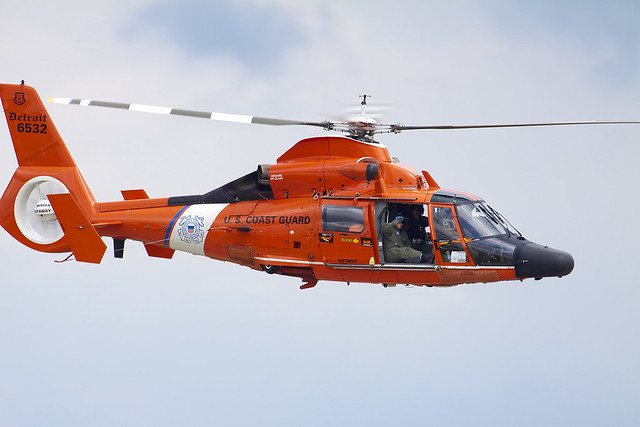 In a letter to Admiral Paul Zukunft, Commandant of the Coast Guard, the Oregon lawmakers stressed the safety implications of closing the facility, writing that the unilateral decision to permanently shut Newport’s doors this December would endanger lives. “Closing this facility would threaten the safety of mariners who make their living in the waters around Newport,” they wrote, “and we urge you to reverse this decision.” Read the rest here 16:11
In a letter to Admiral Paul Zukunft, Commandant of the Coast Guard, the Oregon lawmakers stressed the safety implications of closing the facility, writing that the unilateral decision to permanently shut Newport’s doors this December would endanger lives. “Closing this facility would threaten the safety of mariners who make their living in the waters around Newport,” they wrote, “and we urge you to reverse this decision.” Read the rest here 16:11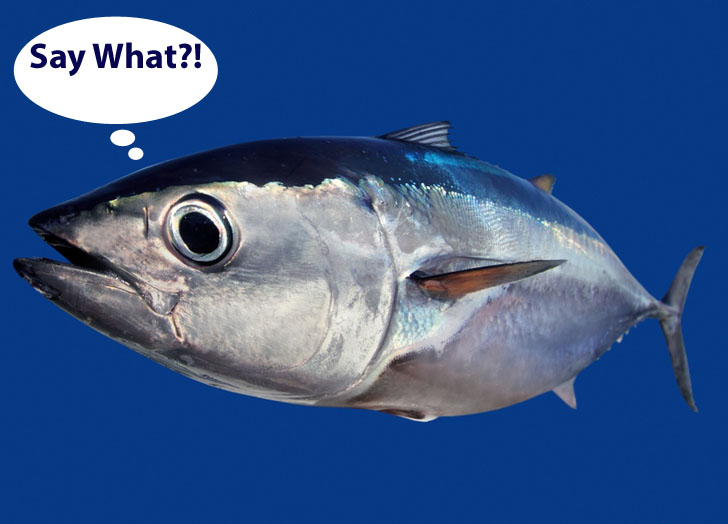 Celebrities who have campaigned for Atlantic bluefin tuna to be kept out of the cooking pot may soon have to find a new fish to champion after scientists concluded the species is on the mend. Sienna Miller, Greta Scacchi, Elle Macpherson and Stephen Fry are among the stars to have called for an end to the overfishing that was devastating stocks.Scacchi went so far as to pose naked, along with Emilia Fox and, Read the rest here 15:30
Celebrities who have campaigned for Atlantic bluefin tuna to be kept out of the cooking pot may soon have to find a new fish to champion after scientists concluded the species is on the mend. Sienna Miller, Greta Scacchi, Elle Macpherson and Stephen Fry are among the stars to have called for an end to the overfishing that was devastating stocks.Scacchi went so far as to pose naked, along with Emilia Fox and, Read the rest here 15:30 NMFS Assistant Regional Administrator Glenn Merrill updated the council on rulemaking processes this morning as part of the agency’s staff report. Merrill said it’s the first time that he hasn’t had any rules to work on at his desk, and was in part due to a lot of hard work by staff this summer. That’s likely to change at this meeting, he noted. Read the rest here 13:05
NMFS Assistant Regional Administrator Glenn Merrill updated the council on rulemaking processes this morning as part of the agency’s staff report. Merrill said it’s the first time that he hasn’t had any rules to work on at his desk, and was in part due to a lot of hard work by staff this summer. That’s likely to change at this meeting, he noted. Read the rest here 13:05 The Newfoundland and Labrador NAFO Division 4R Atlantic herring purse seine fishery has achieved MSC certification, becoming the first herring fishery in Canada to attain certification as sustainable and well-managed against the science-based MSC standard. Read the rest here 12:59
The Newfoundland and Labrador NAFO Division 4R Atlantic herring purse seine fishery has achieved MSC certification, becoming the first herring fishery in Canada to attain certification as sustainable and well-managed against the science-based MSC standard. Read the rest here 12:59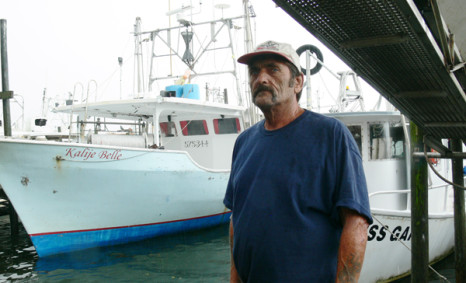 “Sarbanes-Oxley Act…which is basically a while collar crime. Fishing is not a while collar job, I guarantee you that.” Yates was later convicted and sentenced to 30 days in jail and three years probation — a situation he calls a nightmare. “I’m raising two grandkids. Lost a time share at Disney, no vacay in seven years, can’t leave the state. It took an act of Congress to go bury her sister four months ago; had to get permission. It has been ridiculous.” Video, and Read the rest here 12:32
“Sarbanes-Oxley Act…which is basically a while collar crime. Fishing is not a while collar job, I guarantee you that.” Yates was later convicted and sentenced to 30 days in jail and three years probation — a situation he calls a nightmare. “I’m raising two grandkids. Lost a time share at Disney, no vacay in seven years, can’t leave the state. It took an act of Congress to go bury her sister four months ago; had to get permission. It has been ridiculous.” Video, and Read the rest here 12:32![]() Nova Scotia hasn’t experienced Newfoundland’s success with deepwater offshore oil exploration, but a senior oil consultant says it’s time to lure in the industry. Read the rest here 09:18
Nova Scotia hasn’t experienced Newfoundland’s success with deepwater offshore oil exploration, but a senior oil consultant says it’s time to lure in the industry. Read the rest here 09:18


































